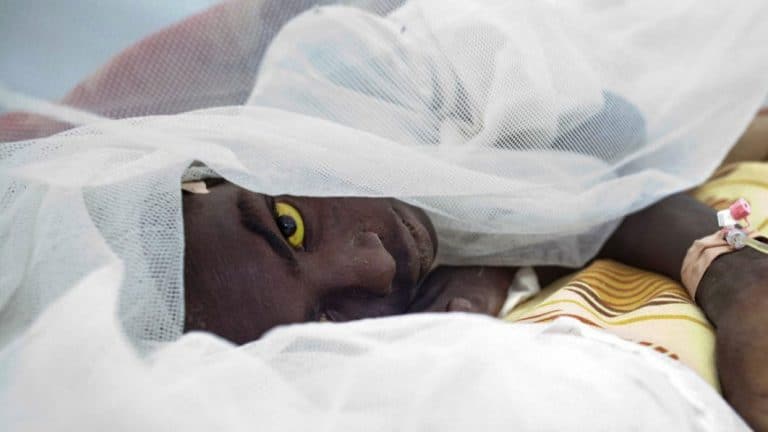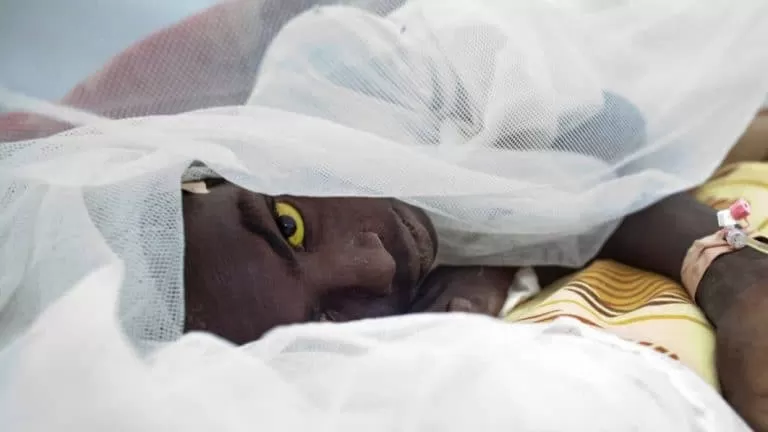

Last updated on September 11th, 2021 at 03:26 pm
It is time for the health authorities to get cracking on strategies to arrest the scourge and shame of yellow fever outbreak in the country. It has become a reproach to Africa’s most populous nation.
According to Nigeria Centre for Disease Control (NCDC), from the onset of Yellow Fever (YF) outbreak in September 2017 to December 2018, 3,902 suspected cases were reported from all 36 states and the Federal Capital Territory (FCT) in Nigeria. Out of the 3,295 samples collected and tested, 185 were presumptive positive in-country and were sent for confirmation to the Institute Pasteur (IP) Dakar for further testing. From the results, 78 positive cases from 14 states (Kwara, Kogi, Kano, Zamfara, Kebbi, Nasarawa, Niger, Katsina, Edo, Ekiti, Rivers, Anambra, FCT and Benue states) were confirmed at IP Dakar.
For the 2019 outbreak, the latest figures on YF in the country as at Expanded Programme on Immunisation (EPI) Week 32 (August 11, 2019), show that a total of 62 samples were presumptive positive in-country based on immunoglobulin (IGM) diagnostic examination of blood serum; and sent to the regional reference laboratory, Dakar, Senegal for confirmation. These presumptive positive cases were reported from 42 local councils in 17 states viz Anambra, one; Benue, one; Borno, 10; Ebonyi, 12; Enugu, two; Abuja, one; Jigawa, three; Katsina, six; Kebbi, 14; Kogi, two; Kwara, one; Nasarawa, two; Ogun, one; Ondo, one; Osun, two; Plateau, one; and Taraba, one.
Despite the recent outbreak of yellow fever in the country, adult Nigerians cannot access the supposedly free preventive vaccine at health centres. In fact, reports confirmed that the vaccine is only available at Ports Health Service offices for international travellers and for infants at health facilities during routine immunisation.
Currently, Nigeria is considered a higher risk country because of the outbreak of YF. Yellow Fever is caused by a virus; and the virus is spread to people by mosquito bites. So, YF is an acute viral haemorrhagic disease transmitted by infected mosquitoes. There is no human-to-human transmission of the virus. The “yellow” in the name refers to the jaundice (yellowness of the eyes) that affects some patients. The symptoms of YF, which take 3–6 days to develop after infection, include fever, chills, headache, backache, muscle pain, jaundice, nausea, vomiting and fatigue. About 15% of people who get YF develop serious illness including bleeding, shock, organ failure, and sometimes death.
Yellow Fever is completely a vaccine preventable disease; and vaccination is the most important means of preventing the disease. The vaccine is free in Nigeria, when given as part of childhood routine immunisation schedule and one shot protects for life. Anyone nine (9) months or older should be vaccinated against Yellow Fever. So, every family should ensure that children receive all their childhood vaccines.
Although, one dose of Yellow Fever vaccine provides long-lasting protection, during outbreaks, those vaccinated against yellow fever 10 or more years ago, should get a booster dose of the vaccine. This may account for why during outbreaks or preventive campaigns, the target age group of nine months to 44-year-olds is given a shot, since it is not known whether they had it. Also, for those who travel to YF risk areas, the vaccine should be administered at least 10 days before travel. Specifically, hikers, park visitors and people engaged with activities in the wild areas are encouraged to be vaccinated against Yellow Fever.
On vaccination, it would be recalled that in 2018, the World Health Organisation (WHO) pledged a yearly donation of 20 million doses of vaccines to eradicate yellow fever in Nigeria; which was aimed at assisting the country in achieving the total vaccination of the populace, in line with the global Elimination of Yellow Epidemics (EYE) by 2026.
However, reports have revealed that only 10 out of the 36 states have already been covered with YF vaccines, with persons aged nine months to 45 years vaccinated within the past two years, and about 35 millions Nigerians out of about 200 million vaccinated since the YF outbreak started in September 2017, through reactive and preventive mass campaigns. This implies that WHO’s donation of YF vaccine is a drop in the ocean.
This could partly account for why adult Nigerians cannot access the supposedly free preventive vaccine at health centres; making YF outbreak in Nigeria a recurrent annual decimal and Nigeria a high risk country. So, while the Yellow Fever vaccine intervention by WHO is commendable; it is important to point out that WHO is only giving fish to Nigeria, instead of teaching Nigeria how to fish.
Obviously, a fact that adult Nigerians cannot access YF vaccine is a deficit that requires credit to fill the account. Therefore, at the moment, that should be a major concern not just to Nigeria, but the global health body – WHO, since containing YF lies in prevention. Hence, instead of focusing on just donating vaccines for YF in Nigeria, WHO should also lead a vaccine and treatment research and fund same, particularly since the Federal Government in 2018 said that Nigeria is set to resume local production of vaccines after 27 years. This is aimed at having home-grown solutions that are sustainable, which will in turn help in curtailing outbreaks and to protect against spread.
Besides, strategically preventing of YF requires a collaboration between town and gown. As such, the Federal Ministry of Health (FMoH) should set evidence-based and contextual health agenda while working with multilateral organisations, as they work based on cooperation with national governments. Therefore, FMOH should engage WHO with the issue of local production of vaccines as the nation’s health agenda. Again, the Federal Ministry of Health; Centre for Disease Control (CDC) in Nigeria; Nigerian Institute of Medical Research; Institute of Human Virology, Nigerian; Research and Development units of health related organisations such as pharmaceutical companies and universities especially the graduate students, should reach out, collaborate and engage in a well-coordinated manner to search for solutions through research.
Essentially, local production of YF vaccine requires research institutes and universities to find opportunity in the threat of YF. This calls for a multidisciplinary problem-solving collaboration among zoology, botany and forestry researchers and pharmacists, who have the capacity to explore and rule their world on this issue. As such, the training of undergraduate and post-graduate students in these disciplines should incorporate YF vaccine in their curriculum. They should also lead a vaccine and treatment research via a comprehensive analysis of the virus and come up with results which hopefully will attract investment in the development of vaccines. In addition, any institution or individual who has done any useful research on YF should make it public.
Also, the relevant ministries, departments and agencies of government at all levels should map the pattern of the outbreak and the states and Local Government Areas (LGAs) that have recorded YF outbreaks, understudy those that never had any outbreak. Through this, identify why and replicate the findings to help those that record outbreaks yearly.
In the main, as Nigeria battles to contain the current outbreak and prevention of YF, the solution lies in manufacturing YF vaccine locally. Local manufacturing of YF vaccine is strategic, viable and sustainable as both the federal and state governments cannot continue to depend on WHO donations. Besides, Nigeria has the capacity to solve this problem and the way to go is to look inwards for the local production of YF vaccine, which will make the product available and accessible.
Hence, local production is the way to go, given that YF vaccine is not available for reactive and preventive campaigns, as supplies come from the International Coordinating Group (ICG) that stockpiles the vaccines for emergencies globally.
Furthermore, because mosquitoes spread yellow fever, individuals should prevent mosquito bites by using insect repellent, wearing long-sleeved shirts, trousers and long gowns when outdoors and sleeping in an air-conditioned or well-screened room or under an insecticide-treated bed net. Similarly, there should be consistent use of nets on windows and doors to prevent access for mosquitoes. If individuals get sick, it is important to avoid self-medication, instead, visit a health facility immediately; or if anyone notices someone in the community displaying the symptoms of YF, please contact the nearest primary healthcare centre. In addition, environments should be kept clean and free of stagnant water and environmental fumigation is also encouraged to discourage the breeding of mosquitoes.
The U.S.-based driver training company Zutobi analyzed road safety worldwide and found South Africa stays last in driving danger since…
The Basketball Africa League (BAL) returns for its 2025 season with exciting changes and developments. Since 2019 the NBA-linked basketball…
The Somali president supports their military forces to eliminate the threats from Al-Shabaab, ISIS, and Al-Qaeda. The Somali National Army…
UAE President Sheikh Mohamed bin Zayed Al Nahyan held talks with President Faustin Archange Touadéra of the Central African Republic…
African football teams struggle intensely in the World Cup Qualification rounds to earn their place on the international football stage.…
The journey toward the 2026 FIFA World Cup is rapidly intensifying for all African teams, who now hold a historical…
This website uses cookies.